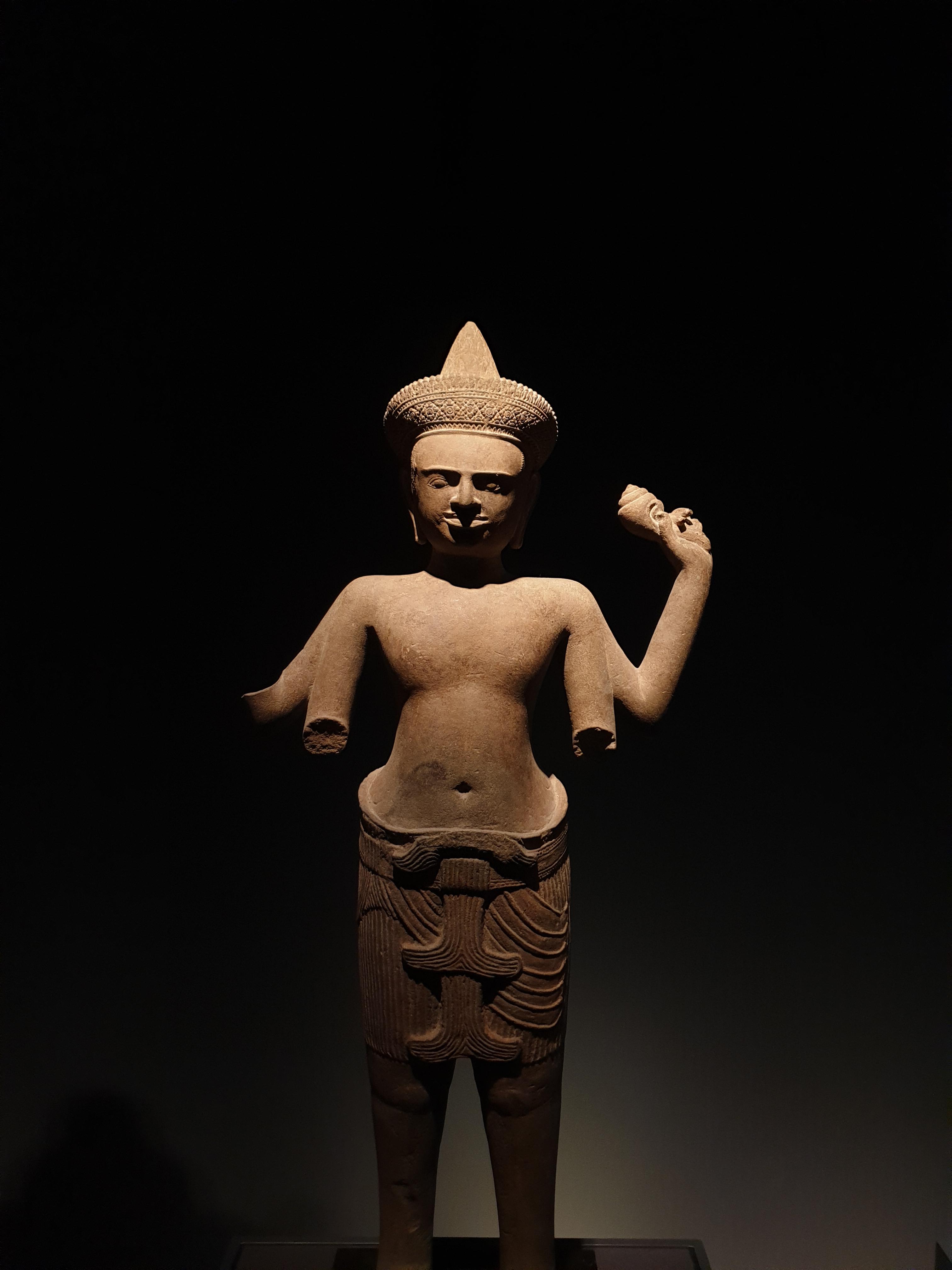

비슈누와 락슈미 Vishnu and Lakshmi
12세기
크메르
구8554,8555
2011년 구입
비슈누(Vishnu)는 여러 화신化身의 모습으로 이 세상에 나타나 재난에 처한 세계를 구제하는 우주의 창조자이자 수호자이다. 흔히 얼굴 하나에 네 개 팔을 지닌 모습으로 표현되는데, 손에는 무기를 든 일이 많다. 비슈누 배우자인 락슈미(라크슈미라 표기하기도, Lakshmi)도 비슈누와 마찬가지로 정적인 자세로 정면을 향한다. 이러한 표현 방식을 통해 위엄 있는 신의 모습을 전달한다.
Khmer
12th century
kco 8554 36565
Purchased in 2011
It is believed that Vishnu, the creator and preserver of the universe, descends in the form of many avatars to save the earth from various disasters. He is usually depicted as a one-headed, four-armed figure often holding weapons in his hands. Like Vishnu, the figure of Lakshmi, Vishnus consort stands in a frontal, static pose. The pose communicates the permanence and dignity of the deities.

가네샤 Ganesha
크메르
10세기 후반
구4538
2007년 구입
시바와 파르바티 아들인 가네샤(Ganesha)는 인도와 동남아시아에서 숭배의 대상이며, 인간 몸에 코끼리 머리가 특징이다. 신도들은 가네샤가 장애물을 없애주고 번영을 가져온다고 믿었다. 캄보디아에서는 앙코르 이전 시기부터 가네샤를 숭배했다.
Khmer
Late 10th century
koo 4538
Purchased in 2007
Ganesha, the son of Shiva and Parvati, is one of the most popular deities in India and Southeast Asia. He is portrayed as having an elephant head and a human body. Devotees believed that Ganesha could destroy all obstacles and bring prosperity. Ganesha worship in Cambodia began before the Angkor period.



우마 혹은 파르바티 Uma or Parvati
크메르
13세기
구4431
2006년 구입
우마(una)는 시바의 배우자로, 파르바티라고도 불린다. 힌두교 여신 중에서는 자애로운 어머니이자 순종적인 부인 이미지를 대표한다. 이 상은 큰 눈, 낮고 넓은 코, 두툼한 입술 등이 자연스럽게 묘사되었고, 얼굴에는 엷은 미소를 띤다.
Khmer
13th century
koo 4431
Purchased in 2006
Uma, the consort of Shiva, is also known as Parvati. In Hinduism, Uma represents a loving mother and obedient wife. This sculpture shows the lifelike qualities and lively facial expression, characteristic of the Bayon style.
이들은 모두 국립중앙박물관 소장품이다.
All those are housed at the National Museum of Korea, Seoul
'문화재현장' 카테고리의 다른 글
| Mt. Emei 峨眉山 아미산 (1) | 2019.12.25 |
|---|---|
| 이모티콘 ㅎㅎㅎ (0) | 2019.12.24 |
| 이차돈을 의심한다 (1) | 2019.12.23 |
| 12세기 인도 팔라Pala 시대 문수보살 (0) | 2019.12.23 |
| 약방의 감초, 중국집의 짜장면 이집트 미라 (1) | 2019.12.23 |




댓글